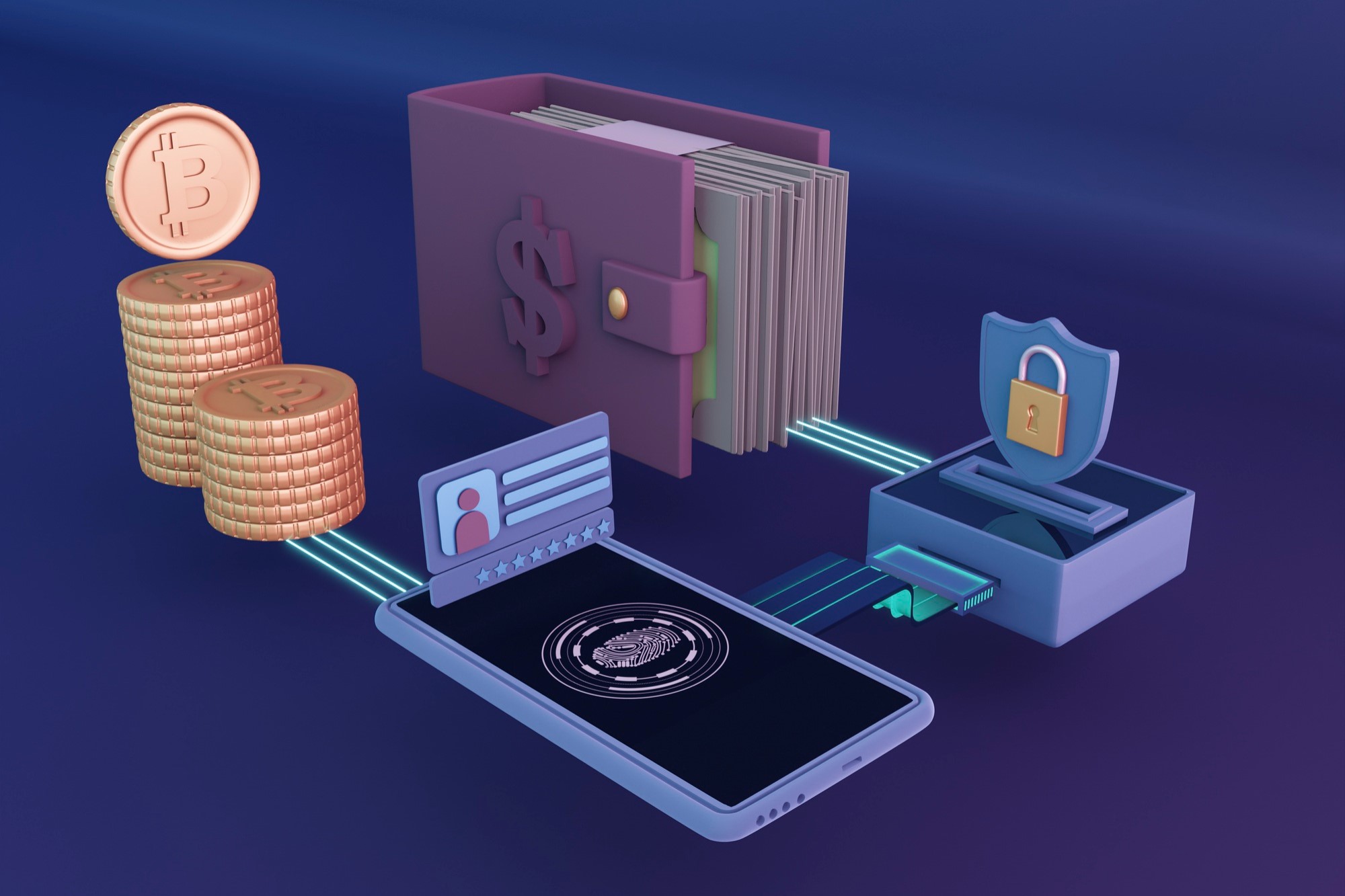Cryptocurrency payment gateways have revolutionized the way businesses conduct transactions in the digital age. Understanding how these gateways function and why integrating them into your business model is crucial can significantly enhance your financial operations. In this article, we delve into the intricacies of cryptocurrency payment gateways, exploring their mechanisms and the compelling reasons for their adoption.
What are Cryptocurrency Payment Gateways?
Cryptocurrency payment gateways play a pivotal role in the modern digital economy by serving as intermediaries that facilitate transactions between merchants and customers using digital currencies. These gateways act as bridges, connecting the traditional financial system with the world of cryptocurrencies such as Bitcoin, Ethereum, or Litecoin.
One of the primary functions of cryptocurrency payment gateways is to enable seamless transactions by providing a user-friendly interface for both merchants and customers. They streamline the process of accepting cryptocurrency payments, making it as simple and efficient as traditional payment methods like credit cards or bank transfers. By offering a familiar and intuitive experience, these gateways help businesses capitalize on the growing popularity of digital currencies without the complexities often associated with them.
Moreover, cryptocurrency payment gateways serve as conversion tools, translating crypto payments into fiat currency or directly into the merchant’s digital wallet. This conversion process is essential for businesses that prefer to receive payments in their local currency to avoid exposure to the volatility inherent in the cryptocurrency market. Additionally, it provides customers with the flexibility to pay with their preferred digital assets while ensuring that merchants receive funds in a familiar form.
How Cryptocurrency Payment Gateways Work
Customer Initiation
- The transaction process begins when a customer selects cryptocurrency as the preferred payment method during the checkout process.
- This selection triggers the payment gateway to generate a unique cryptocurrency address or QR code for the customer to send the payment to.
Conversion
- Upon receiving the cryptocurrency payment, the payment gateway initiates the conversion process.
- The gateway either converts the cryptocurrency amount into fiat currency in real-time at the current market rate or transfers it directly to the merchant’s digital wallet in the form of cryptocurrency.
Confirmation
- Once the transaction is initiated, it is broadcasted to the respective cryptocurrency network for validation.
- The transaction is confirmed when it is included in a block and added to the blockchain, providing cryptographic proof of its authenticity and immutability.
Settlement
- After confirmation, the converted fiat currency or cryptocurrency is settled into the merchant’s account.
- Settlement typically occurs within a short period, ranging from minutes to hours, depending on factors such as network congestion and the specific cryptocurrency used.
| Step | Description | Example |
| Customer Initiation | Customer selects cryptocurrency as the payment method during checkout. | Customer selects Bitcoin as the payment method for a purchase. |
| Conversion | The payment gateway converts the cryptocurrency amount into fiat currency or transfers it to the merchant’s wallet. | Payment gateway converts 0.05 BTC to $500 USD at the current exchange rate. |
| Confirmation | The transaction is confirmed on the blockchain network, ensuring its validity and immutability. | The Bitcoin transaction receives 6 confirmations on the blockchain. |
| Settlement | The converted fiat currency is settled into the merchant’s account, usually within a short period. | $500 USD is deposited into the merchant’s bank account. |
This table provides a concise overview of each step in the cryptocurrency payment process, highlighting the key actions and outcomes at each stage.
Key Components of Cryptocurrency Payment Gateways
Secure Wallet Integration
- Cryptocurrency payment gateways prioritize the utilization of secure wallets to store and manage digital assets securely.
- Secure wallets employ advanced encryption techniques to safeguard private keys and protect against unauthorized access.
- These wallets are designed to withstand cyber threats and ensure the integrity of stored digital assets.
Real-time Conversion
- Cryptocurrency payment gateways offer seamless conversion of cryptocurrency to fiat currency or other cryptocurrencies at current market rates.
- Real-time conversion enables merchants to receive payments in their preferred currency without exposure to price volatility.
- This feature enhances flexibility and convenience for both merchants and customers, facilitating efficient transactions.
Blockchain Integration
- Integration with blockchain technology is a fundamental aspect of cryptocurrency payment gateways to ensure transparency, security, and immutability of transactions.
- By leveraging blockchain technology, payment gateways provide transparent and tamper-proof records of transactions.
- Blockchain integration enhances security by eliminating the need for intermediaries and reducing the risk of fraud or manipulation.
Transaction Monitoring
- Cryptocurrency payment gateways employ robust systems for monitoring and tracking transactions in real-time to detect and prevent fraudulent activities.
- Transaction monitoring tools analyze transaction patterns and behaviors to identify suspicious activities.
- Real-time alerts and notifications enable proactive intervention to mitigate potential risks and safeguard the integrity of transactions.
Compliance and Regulations
- Adherence to regulatory standards and compliance requirements is paramount for cryptocurrency payment gateways to ensure legality and legitimacy.
- Payment gateways implement stringent compliance measures to adhere to anti-money laundering (AML) and know your customer (KYC) regulations.
- Compliance with regulatory frameworks fosters trust and confidence among users and regulatory authorities, facilitating broader adoption of cryptocurrency payment solutions.
Why You Need a Cryptocurrency Payment Gateway
Expanding your customer base is crucial for business growth, and cryptocurrency payment gateways offer a gateway to a global audience. By accepting cryptocurrency payments, you tap into the expanding population of cryptocurrency users worldwide, opening up new markets and revenue streams. With traditional payment methods limited by geographical boundaries and currency restrictions, cryptocurrency payments break down these barriers, enabling seamless transactions across borders.
In addition to broadening your customer reach, cryptocurrency payment gateways offer cost-saving advantages. Compared to traditional payment methods, cryptocurrency transactions often incur lower fees, reducing overhead costs associated with payment processing. This cost efficiency translates into savings in the long run, allowing businesses to allocate resources more effectively and improve profitability.
Moreover, prioritizing security in financial transactions is paramount for businesses in the digital age. Cryptocurrency transactions are encrypted and secure, leveraging blockchain technology to prevent unauthorized access and protect against fraud and chargebacks. By adopting cryptocurrency payment gateways, businesses mitigate the risk of security breaches and safeguard sensitive financial information, enhancing trust and confidence among customers.
Integration Considerations
When integrating cryptocurrency payment gateways into your business infrastructure, several key considerations ensure a seamless and effective implementation. Firstly, evaluate the compatibility of cryptocurrency payment gateways with your existing e-commerce platform. Compatibility issues can arise if the gateway does not integrate seamlessly with your platform, leading to disruptions in payment processing and customer experience.
Furthermore, consider the scalability and flexibility of the chosen gateway to accommodate future growth and evolving business needs. As your business expands, you need a payment gateway that can scale with increasing transaction volumes and adapt to changing market dynamics. Choosing a flexible and scalable solution ensures that your payment infrastructure remains robust and responsive to growing demand.
Additionally, comprehensive customer support and assistance are essential for successful integration and troubleshooting. Ensure that the cryptocurrency payment gateway provider offers responsive customer support channels and resources to assist with integration challenges and resolve any issues promptly. Access to knowledgeable support staff can streamline the integration process and minimize downtime, allowing you to reap the benefits of cryptocurrency payments without disruptions.




